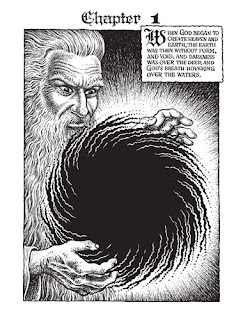mockery, practicality and what i read in june
 Among the works of literature I’m reading right now are the long, illustrated posts at Gototrafficschool.com. It’s like my brain is in one of those commercials where the practical side wants good value and the fun side wants fun, and they realize they can both agree on this product that happens to be a good deal and have a ton of sex appeal. Half of my brain is like, Yes, driving is serious business. We should be more careful, and stop trying to change out CDs while we’re on the freeway. Then I get to tips like this, re: what to do with a recalled child safety seat:
Among the works of literature I’m reading right now are the long, illustrated posts at Gototrafficschool.com. It’s like my brain is in one of those commercials where the practical side wants good value and the fun side wants fun, and they realize they can both agree on this product that happens to be a good deal and have a ton of sex appeal. Half of my brain is like, Yes, driving is serious business. We should be more careful, and stop trying to change out CDs while we’re on the freeway. Then I get to tips like this, re: what to do with a recalled child safety seat:To make sure it is not picked up by someone and used by another child, break it with a sledgehammer, crush it, or take it completely apart and mark it 'not for use as a safety seat' before throwing it away wrapped securely in a heavy trash bag.
And traffic school becomes purely mockable, and much more interesting.*
Anyway, I also read some books last month:
Union Atlantic by Adam Haslett: I had a funny relationship with this book. Like Richard Powers (one of my favorites), Haslett ties all kinds of big ideas (banking, regulation, American history) into a human story full of sex and power dynamics. The novel got off to a slow start for me, but I was impressed by its brilliance and sad that I wasn't a little smarter about the financial world. Then--maybe when the sex went up and the stock market went down--I began to feel more engaged but less impressed. I'm not sure where I landed in the end. I just didn't have that sense of understanding the world more deeply that Powers usually triggers. BUT I should add that Haslett crafts a great sentence, and my friends Amy and Kim rock for giving me a copy of the beautiful hardcover for my birthday.
Washington Square by Henry James: An early feminist novel by a dude. Rich, plain girl meets poor, rakish man (having just seen Get Him to the Greek, I pictured Morris Townsend as Aldous Snow). Girl's coldly witty doctor father disapproves. Girl pines. There's a lot of back and forth among the three, and the first part of the novel moves slowly despite James' funny, observant prose. At first I thought Dr. Sloper was an ass who had no faith in his daughter and her potential desirability. Then I concluded Morris/Aldous WAS in fact a money-hungry jerk. So (spoiler alert--although can you spoil a book whose ending has been public for a hundred years?) I was pleased when rich, plain Catherine concluded she didn't need either of the condescending men in her life. Although I admit the Jane Austen fan in me kind of wanted her to marry one of the better suitors who came along after Morris.
A Special Providence by Richard Yates: Richard Yates understands people's pretensions and self-delusions better than any writer I've read. He gets that when people stomp out of a room, there's a small movie playing in their head in which a person stomps out of a room. He gets that, even in war, people are sometimes brave because they like the idea of being brave, not necessarily because they want to protect their country. In Revolutionary Road, this reality was profoundly depressing (but still a great read). In this novel, which alternates between a young WWII soldier and his struggling sculptor mother, delusion is the fuel of hope. And maybe hope is a coping mechanism, but isn't it the least any of us deserve?
The Book of Genesis, illustrated by R. Crumb: So this is what people mean when they talk about the “Old Testament God.” He’s demanding, vengeful and arbitrary in his blessings and cursings. Jacob dresses up as his hairy brother Esau to sneak a blessing via his blind father, Isaac—and Esau is the bad guy for being a little peeved? Guess so, because now Jacob is the chosen one, and you can’t mess with God’s favorites.
Needless to say, I didn’t find the Book of Genesis particularly informative on the morality front, or on the storytelling front for that matter. Hello, Isaac telling his wife Rebekah to disguise herself as his sister during their travels (so he won’t be killed when she’s inevitably raped [!]) is totally a rerun of Abraham saying the exact same thing to Sarah.
But I did like the roundness of the language, and the bits of history glimmering through the myths. R. Crumb’s apparent careful research of the text and period—from buildings to embalming practices—makes for a nice visual reminder of this blend. I’m not sure if his research also revealed women of the time to have giant, perky tits even at age ninety, but if snakes talk and people turn into pillars of salt, why not?
*Although, because I don’t want babies to die, if I ever find myself in possession of recalled car seat, I will dispose of it as thoroughly as I would dispose of a dead body.



Comments